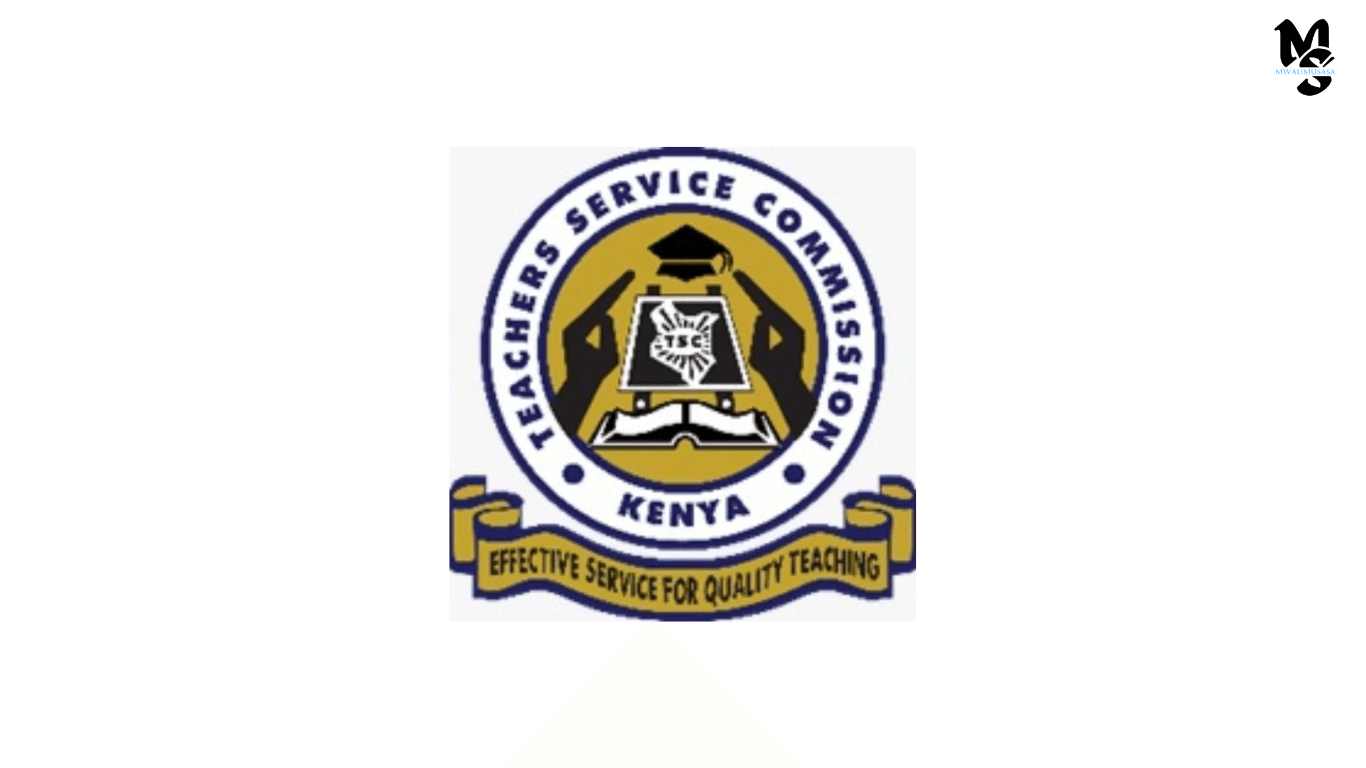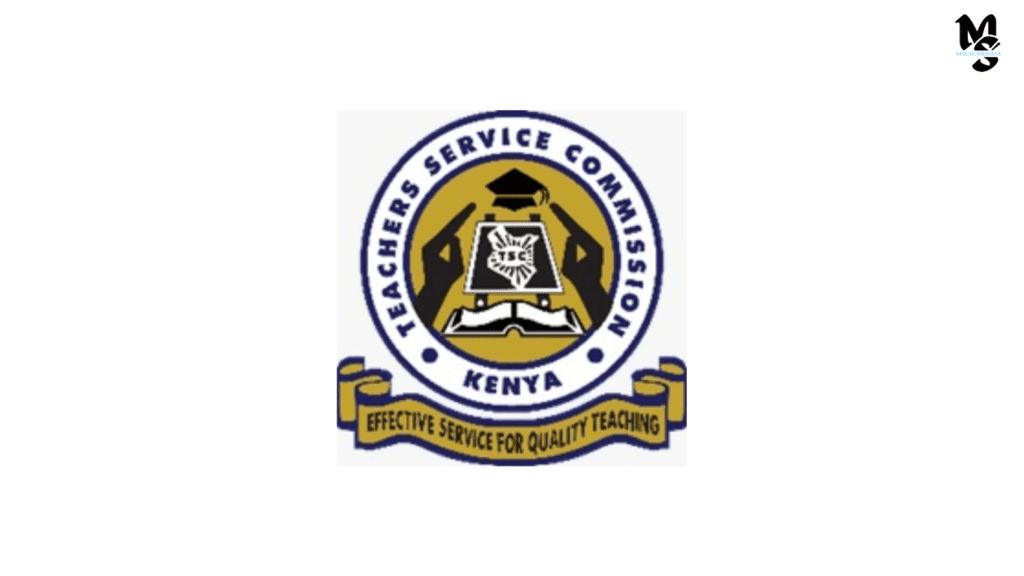Promotions and Career Growth Opportunities for Teachers in Kenya

A logo of the TSC

Introduction
The Teachers Service Commission (TSC) plays a central role in the professional development and career advancement of educators in Kenya. As the body mandated with the management of teachers’ employment, the TSC serves not only to employ teachers but also to establish the frameworks that govern their promotions and professional growth. In recent years, there have been growing concerns surrounding the challenges teachers face regarding their promotion pathways. Many educators remain stagnated within their job groups for extended periods, which can lead to decreased morale and motivation.
The promotion process within the TSC is often marred by various obstacles, including a lack of clear guidelines and inconsistent implementation across regions. Teachers may encounter difficulties in understanding the criteria for advancement, resulting in frustration and a sense of disillusionment with their careers. This stagnation can have ripple effects, impacting not only the teachers themselves but the overall quality of education received by learners. Additionally, there’s a pressing need for a structured promotion system that reflects teachers’ qualifications, experience, and performance, which the TSC acknowledges as vital for enhancing teacher morale and commitment to their profession.
To address these challenges, the TSC has introduced new promotion guidelines aimed at streamlining the processes and offering clearer pathways for career advancement. These reforms are expected to address longstanding grievances among teachers and foster a more supportive environment for professional growth. By clarifying promotion criteria and enhancing equity in assessment, the TSC aims to empower educators to pursue continuous development. Furthermore, these improvements are anticipated to positively influence teacher job satisfaction, ultimately contributing to a more dedicated and effective teaching workforce. This evolution in the promotion landscape marks a significant step towards enhancing the profession and ensuring that teachers feel valued and motivated.
TSC’s New Promotion Guidelines
The Teachers Service Commission (TSC) has introduced new promotion guidelines aimed at enhancing the career growth opportunities for teachers in Kenya. These guidelines particularly focus on automating promotions for specific groups of teachers, particularly those who have experienced stagnation in their career progression over the years. This initiative reflects the TSC’s commitment to improving the professional development of educators and creating a more rewarding teaching environment.
The criteria for automatic promotions under the new guidelines are centered around three main factors: years of service, qualifications, and performance metrics. First, teachers who demonstrate a substantive period of service, typically ten years or more, are prioritized for automatic promotion. This element is crucial as it acknowledges the commitment and dedication of long-serving teachers, who often find themselves stuck without clear pathways for advancement.
In addition to years of service, the TSC emphasizes the importance of educational qualifications. Teachers are encouraged to pursue higher qualifications such as diplomas, degrees, or advanced certifications that align with their professional roles. The TSC’s focus on qualifications ensures that educators are not only rewarded for their tenure but also for their ongoing learning and development. Furthermore, performance metrics have been incorporated into the promotion criteria, ensuring that those who consistently meet or exceed performance standards are recognized and promoted accordingly.
This strategic approach aims to mitigate the stagnation that many teachers have faced in their careers. By evaluating and acknowledging the contributions of educators through these criteria, the TSC fosters a culture of meritocracy within the teaching profession. As these new guidelines unfold, it is anticipated that they will not only improve teacher morale but also enhance the overall quality of education in Kenya.
Impact of Automatic Promotions on Career Growth
Automatic promotions have become a significant aspect of career growth for teachers in Kenya, contributing positively to their job satisfaction and professional development. This system not only motivates educators but also enhances their performance, which in turn fosters a higher quality of education across the nation. Teachers who are promoted automatically, particularly after reaching certain milestones in their careers, often experience an increased sense of achievement and validation in their roles. This recognition encourages them to pursue further development of their skills and knowledge.
One of the key benefits of automatic promotions is the impact it has on teacher motivation. When educators see that their hard work and dedication are being acknowledged through promotions, they are likely to remain engaged and committed to their profession. This motivation is particularly crucial in rural and underserved areas where teachers often face various challenges, including limited resources and difficult working conditions. In these contexts, automatic promotions serve as a significant incentive, encouraging teachers to continue striving for excellence in their teaching practices.
Moreover, the practice of automatic promotions fosters a culture of continuous professional growth. Educators are incentivized to acquire further qualifications and training, knowing that such advancements can lead to promotions. This commitment to self-improvement not only benefits the teachers themselves but also significantly impacts their students, as well-prepared educators are more likely to deliver high-quality educational experiences. For example, long-serving teachers who have been automatically promoted often share their knowledge and skills with less experienced colleagues, enhancing collaborative teaching efforts within their schools.
In conclusion, automatic promotions for teachers in Kenya play a crucial role in enhancing job satisfaction and drive professional growth. By motivating educators to perform at their best and contributing positively to the overall educational landscape, these promotions not only benefit individual teachers but also significantly uplift the quality of education in the country, especially in rural communities.
Challenges and Criticism of the Promotion Process
The implementation of the new promotion guidelines for teachers in Kenya has garnered attention, revealing several challenges and criticisms that may impact its efficacy. One of the primary concerns is the limited number of promotion slots available, which creates a highly competitive atmosphere among educators. With an increasing number of qualified teachers seeking advancement in their careers, the finite opportunities pose significant obstacles for many. This competitive landscape often results in frustration and disappointment, as numerous deserving candidates may miss out on well-earned promotions, leading to decreased morale within the teaching community.
Furthermore, questions surrounding the transparency and fairness of the promotion process have emerged. Educators and lawmakers alike have raised concerns that the criteria used for promotions may not always be clearly communicated, potentially leading to perceptions of bias or favoritism. When teachers perceive the system as lacking transparency, it can diminish their trust in the mechanisms at play and foster an environment of skepticism regarding the promotion process itself. This concerns not only the individual teachers but also the broader educational framework in Kenya that relies on fostering confidence among its workforce.
Additionally, there are fears that gaps in the implementation of the promotion guidelines could further hinder their effectiveness. For instance, inconsistencies in how the guidelines are applied across different regions and institutions may lead to unequal opportunities. Some educators might have access to supportive resources and professional development, while others may not, exacerbating existing disparities within the educational system. Such inequalities pose substantial challenges to achieving a fair and equitable promotion process, ultimately undermining the credibility of the entire framework designed to foster teacher career growth.
How Teachers Can Leverage the New Opportunities
In the ever-evolving education landscape in Kenya, teachers can take significant steps to enhance their chances for promotion under the new guidelines established by the Teachers Service Commission (TSC). First and foremost, pursuing further education plays a crucial role. By enrolling in advanced degree programs or specialized training, teachers acquire the necessary qualifications and skills that not only deepen their subject knowledge but also demonstrate a commitment to professional growth. Further education can also help educators develop critical competencies that align with the TSC’s performance objectives.
Additionally, remaining up-to-date with TSC requirements is vital for teachers aiming for promotions. Frequent changes in regulations, performance standards, and professional development expectations necessitate that educators stay informed. Regularly visiting the TSC’s official website, attending relevant workshops, and participating in professional networks can provide teachers with crucial insights into current and upcoming prerequisites. This proactive approach will ensure that teachers are not only compliant but also prepared to showcase their qualifications for advancement.
Moreover, being proactive in applying for promotion opportunities is essential. Teachers should actively seek out openings within their institutions, prepare compelling application materials, and demonstrate their willingness to embrace new responsibilities. A well-prepared application can set them apart from their peers. It is also important to cultivate a solid professional record, which includes documenting performance evaluations, contributing to school projects, and taking on leadership roles within the educational community. Such experiences not only enhance a teacher’s portfolio but also reflect positively on their commitment to the profession.
By focusing on continuous education, remaining informed about TSC guidelines, and applying strategically for promotions, teachers in Kenya can effectively leverage new opportunities for career advancement in the education sector.
The Future of Career Growth in Kenya’s Teaching Profession
The transformational reforms introduced by the Teachers Service Commission (TSC) are set to significantly impact the teaching profession in Kenya. These reforms aim to create a more transparent and efficient promotion process, which could transform the landscape for educators across the nation. As the TSC works towards establishing clear criteria for promotions, teachers can expect a more structured pathway to career advancement. This newfound clarity is likely to enhance job satisfaction, as educators will have a better understanding of what is required to qualify for promotions.
Furthermore, the anticipated changes in salary structures are a crucial aspect of these reforms. With the TSC’s commitment to improving the financial compensation for teachers, educators can look forward to a more rewarding career. This upward adjustment in salaries, coupled with more frequent promotions, positions teaching as a more attractive profession in Kenya’s job market. As teachers experience tangible benefits from their hard work and dedication, the overall morale within the profession can be expected to rise significantly.
The role of teacher unions in this reform process cannot be overlooked. Unions have historically advocated for the rights of teachers, ensuring that their voices are heard in policymaking discussions. As the TSC implements these changes, teacher unions will play a critical role in promoting ongoing enhancements to the promotion process. Their efforts can help ensure that the changes remain beneficial for educational professionals while fostering an environment that values teacher retention and development.
In the coming years, as the TSC continues to refine its policies and practices, the teaching profession in Kenya is poised for a promising future. Teachers can anticipate a career that not only rewards their commitment but also recognizes their contributions to the education sector. These reforms signal a significant shift towards a more favorable working environment, where the potential for career growth is both real and attainable.
Conclusion
In the contemporary educational landscape of Kenya, the significance of career growth opportunities for teachers cannot be overstated. The Teachers Service Commission (TSC) plays a pivotal role in shaping these opportunities through well-structured promotion guidelines. By providing a clear pathway for advancement, the TSC encourages educators to enhance their skills and performance, ultimately benefiting the entire educational system. The new promotion guidelines serve not only as a motivational tool for teachers but also as an affirmation of the TSC’s commitment to fostering professional development.
Teachers are encouraged to familiarize themselves with these guidelines and remain vigilant regarding the various career advancement avenues available to them. Understanding the criteria for promotions, professional development programs, and other growth opportunities can empower teachers to navigate their careers more effectively. Moreover, active engagement in workshops, conferences, and further education can significantly enrich a teacher’s professional journey.
Maintaining an awareness of the TSC’s strategies and updates is essential for educators aiming to leverage their qualifications for career progression. Furthermore, a proactive approach to career advancement—through networking, mentorship, and continuous learning—can significantly influence the trajectory of a teacher’s professional life. The pursuit of personal growth and the quest for excellence in teaching can lead to improved educational outcomes for students, thereby enhancing the overall quality of education in Kenya.
In summary, the journey towards professional development as a teacher should be an active and strategic undertaking. By taking advantage of the TSC’s promotion guidelines and focusing on continuous improvement, teachers in Kenya can pave the way for their success and contribute meaningfully to the educational sector. This commitment to growth not only benefits the individual educator but also uplifts the standards of education as a whole.






